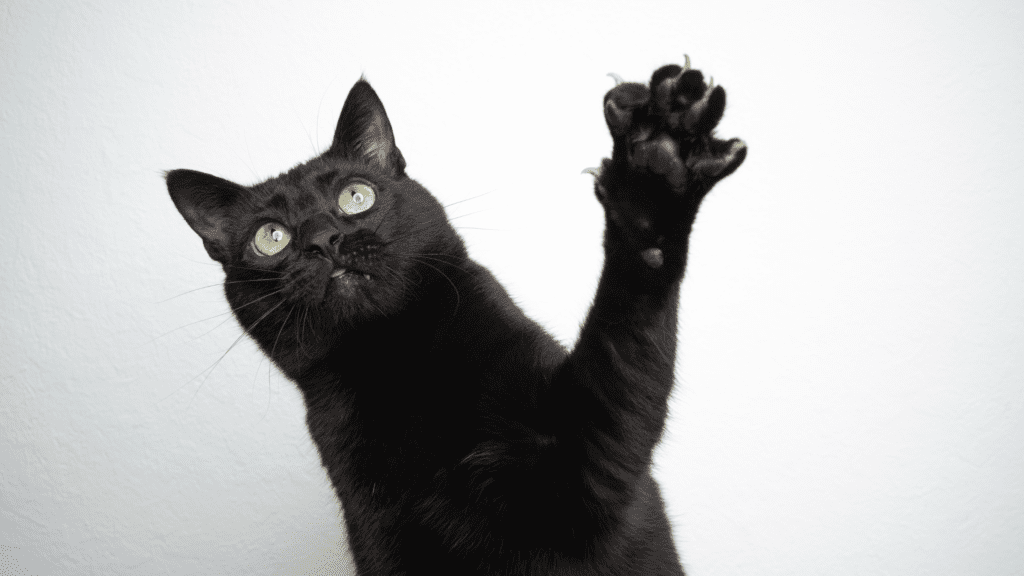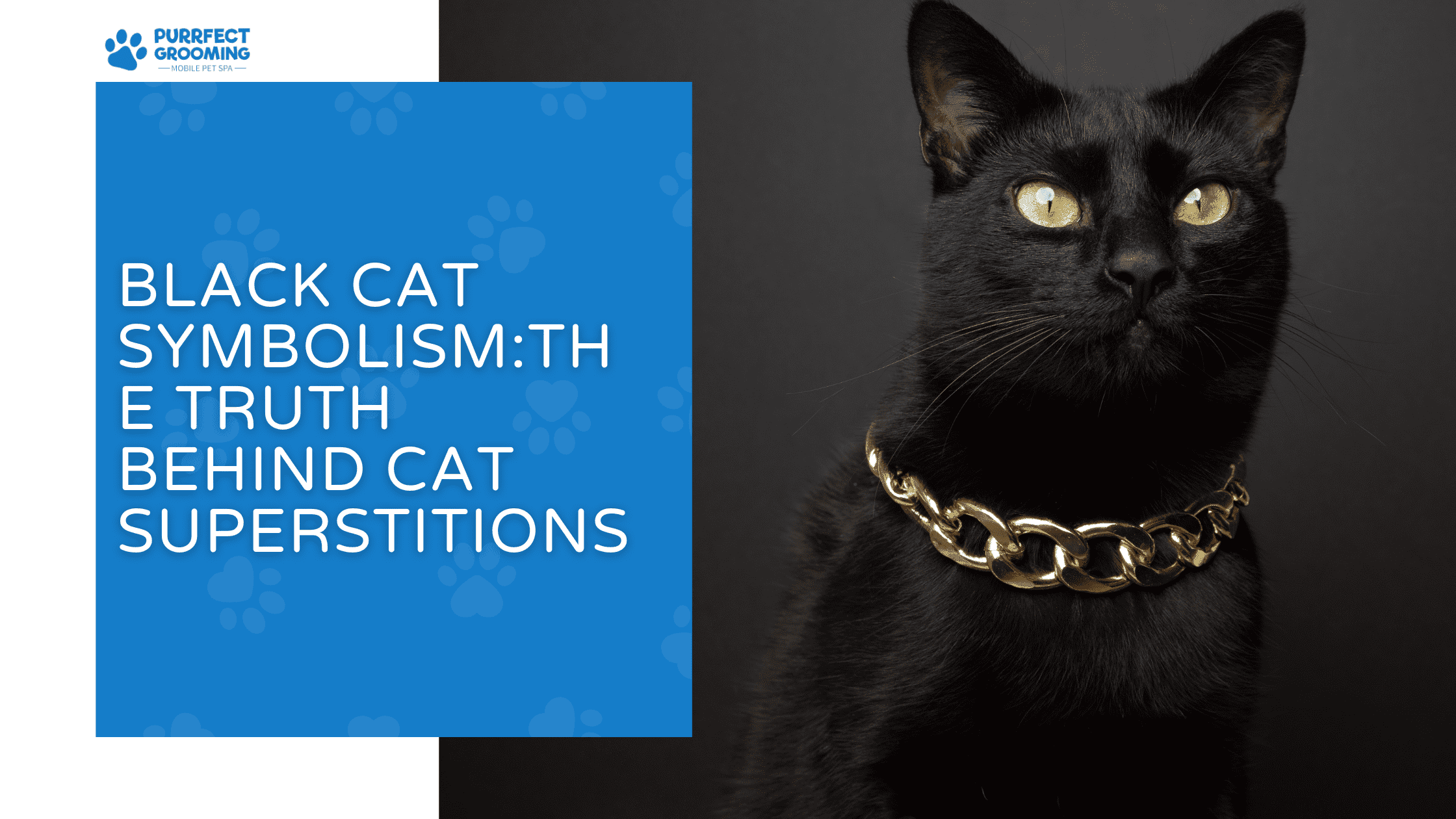Black Cat Symbolism:The Truth Behind Cat Superstitions
Black cats have long been surrounded by mystery, myths, and superstitions. Some cultures revere them as symbols of good luck, while others fear them as omens of misfortune and evil. These feline creatures have been linked to witchcraft, folklore, and even spiritual meanings across different civilizations.
Did you know that black cats are less likely to be adopted from shelters compared to cats of other colors? According to the ASPCA (American Society for the Prevention of Cruelty to Animals), black cats have one of the lowest adoption rates due to lingering superstitions and myths. Many shelters even report higher euthanasia rates for black cats simply because of their color.
In this article, we will explore the history, symbolism, and scientific facts about black cats. We’ll debunk common myths, analyze cultural beliefs, and reveal why black cats deserve love and appreciation rather than fear.
The History of Black Cat Symbolism
1. Ancient Egyptian Reverence for Black Cats
In ancient Egypt, black cats were sacred creatures. The Egyptian goddess Bastet, known as the protector of homes and women, was often depicted with the head of a lioness or a black cat. Egyptians believed that having a black cat in their home would bring prosperity and protection. Killing a black cat was considered a crime punishable by death because these felines were so highly respected.
Many Egyptian households even kept black cats as pets to ward off evil spirits and ensure their family’s well-being. Today, some still consider black cats to be guardians of the supernatural and symbols of divine protection.
2. Black Cats in Celtic and Norse Mythology
- In Celtic folklore, black cats were thought to possess magical powers and were sometimes considered shape-shifting fairies known as the Cat Sìth. The Celts believed that leaving food for the Cat Sìth would bring blessings, while mistreating one could bring misfortune.
- In Norse mythology, the goddess Freyja, who ruled over love, beauty, and war, had a chariot pulled by two large black cats. Farmers believed that feeding black cats would bring them a bountiful harvest.
3. Black Cats in Medieval Europe
During medieval times in Europe, black cats started being associated with dark magic, omens, and misfortune. Many people feared that witches could transform into black cats, leading to mass persecution of both witches and their feline companions.
In the 14th century, the Black Death (bubonic plague) spread across Europe, and black cats were wrongfully blamed for the disease. Many were killed, but ironically, this led to an increase in the rat population, which made the plague even worse.
This negative perception continued into the Salem Witch Trials, where women accused of witchcraft were believed to have black cats as their “familiars” (spiritual companions).
Black Cat Superstitions Across Different Cultures
1. Positive Superstitions About Black Cats
While black cats have been feared in some cultures, others have seen them as symbols of good fortune and prosperity.
- Japan: Black cats are believed to bring romantic success and ward off evil spirits. Many single women in Japan keep black cats to attract good suitors.
- Scotland: Seeing a black cat on your doorstep is considered a sign of wealth and prosperity.
- England: British sailors often kept black cats on their ships because they were thought to bring good luck and ensure a safe journey.
2. Negative Superstitions About Black Cats
- United States & Western Europe: Many believe that if a black cat crosses your path, it brings bad luck.
- Latin America: Some people associate black cats with witchcraft and the supernatural, fearing that they carry curses.
Common Myths About Black Cats (Debunked!)
1. Myth: Black Cats Bring Bad Luck
- Truth: There is no scientific evidence that black cats bring bad luck. This belief is rooted in centuries-old superstitions rather than facts.
2. Myth: Black Cats Are Witches in Disguise
- Truth: This myth originated during the Salem Witch Trials, where accused witches were believed to turn into black cats to escape capture.
3. Myth: Seeing a Black Cat at Night Means Death
- Truth: This myth is purely fictional and stems from horror stories and folklore, not real-life experiences.

Scientific Facts About Black Cats
1. The Genetics Behind Black Cat Fur
Black cats get their unique fur color due to a dominant gene called melanism. This genetic mutation causes an overproduction of black pigmentation, making their fur appear dark and shiny.
2. Black Cats May Have Better Immune Systems
A study published in the National Institute of Health found that melanism may provide a stronger immune system, making black cats less susceptible to certain diseases.
3. Black Cats and Their Unique Health Advantages
Due to their high melanin levels, black cats are less likely to develop skin conditions caused by sun exposure.
How Black Cat Superstitions Impact Adoption Rates
Many animal shelters report that black cats have the lowest adoption rates due to negative superstitions. Some shelters even avoid adopting out black cats near Halloween, fearing they may be used in rituals or harmed.
How Can We Change This?
- Spread Awareness: Educate people about black cat myths and encourage adoption.
- Adopt a Black Cat: Give them the loving homes they deserve.
- Support Animal Welfare Groups: Many organizations actively work to combat black cat stereotypes.
Conclusion
Black cats have been misunderstood for centuries, yet they remain one of the most beautiful and mystical creatures. Whether seen as lucky or unlucky, black cats are just like any other cats—loving, playful, and in need of care.
By educating ourselves and others, we can break free from superstitions and embrace these majestic felines without fear.
FAQs
1. Are black cats really bad luck?
No, there is no scientific evidence supporting this claim. It is purely a superstition.
2. Why were black cats associated with witchcraft?
During medieval times, people believed that witches could turn into black cats to escape persecution.
3. Do black cats have different personalities than other cats?
No, a cat’s personality is determined by its breed and upbringing, not its color.
4. Why do black cats have a lower adoption rate?
Many people still believe in superstitions, making them less likely to adopt black cats.
5. What cultures consider black cats lucky?
Japan, Scotland, and England see black cats as symbols of good fortune and protection.
